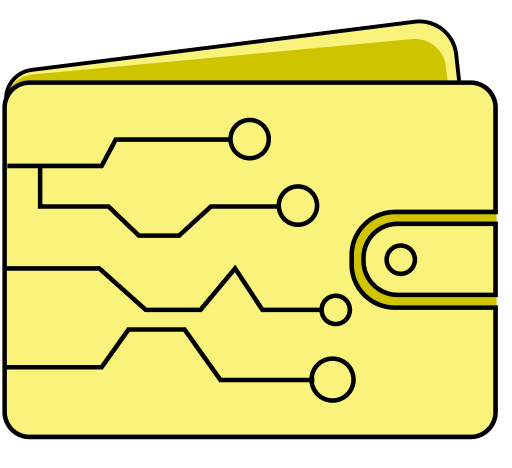Introduction
The Account Abstraction Wallet Ambire is a cryptocurrency wallet that leverages account abstraction to enhance usability, flexibility, and security in blockchain interactions. Unlike traditional wallets relying on externally owned accounts (EOAs), Ambire integrates smart contract wallets and account abstraction features to simplify digital asset management. With these principles, Ambire enables gas payments in stablecoins, advanced transaction management, and customizable security settings, positioning itself as a practical solution for everyday blockchain users.
Understanding Account Abstraction
To explain Account Abstraction Wallet Ambire, it is essential first to understand account abstraction. On blockchains like Ethereum, there are two main account types: externally owned accounts governed by private keys, and contract accounts controlled by smart contracts. Traditional transactions are processed by EOAs, while contracts handle programmatic logic.
Account abstraction merges these models, allowing user accounts to act like smart contracts, enabling advanced functions EOAs cannot provide. This includes multi-signature authorization, scheduled payments, and custom security rules without centralized intermediaries. Ethereum Improvement Proposals (EIPs), such as EIP-4337, define account abstraction without changing the core protocol. Ambire Wallet has adopted these features, bringing smart contract programmability to non-technical users.
Background and Evolution of Ambire Wallet
Ambire Wallet, a non-custodian, open-source wallet, was designed for both new and experienced users. Developed by a team skilled in blockchain, security, and DeFi integration, the wallet initially focused on simplifying interactions with decentralized finance. Account abstraction was later incorporated, making Ambire one of the first mainstream wallets supporting this concept.
Legacy wallets often confuse newcomers with ETH gas fees and single-key management risks. Ambire addressed these issues by integrating account abstraction, offering a flexible and intuitive solution. Over time, the wallet gained a user base emphasizing usability, aligning with Ethereum’s long-term development plans, and solidifying its place in the blockchain ecosystem.
Technology Behind Ambire Wallet
Ambire Wallet relies on smart contract-based architecture to deliver its features, turning each wallet into a programmable smart contract account.
Gas abstraction
The wallet allows transaction fees to be paid in stablecoins or other ERC-20 tokens instead of ETH, using relayers or paymasters to handle gas payments.
Security customization
Smart contract accounts support multi-signature approvals, social recovery, and time locks, reducing risks associated with a single private key.
Transaction batching
Users can aggregate multiple operations into a single transaction, such as token exchanges, smart contract authorizations, and fund transfers, saving time and fees.
Compatibility
Ambire interacts seamlessly with decentralized applications (dApps) through standard protocols like WalletConnect, integrating new features while maintaining ecosystem compatibility.
Features for Daily Users
Ambire Wallet is designed for practical usability, making blockchain functions intuitive.
Simplified gas fees
Users can pay transaction fees in stablecoins like USDC or DAI, removing the need for ETH ownership.
Intuitive onboarding
Email and password authentication is provided, backed by smart contracts, easing entry for users unfamiliar with private key management.
Increased security
Social recovery allows friends, trusted devices, or backup accounts to restore access if a device is lost.
Web3 and DeFi integration
Ambire integrates natively with DeFi protocols, NFT marketplaces, and blockchain services, enabling users to interact without leaving the wallet.
Participation in the Blockchain Community
Ambire demonstrates the potential of account abstraction to improve user experiences in crypto. Its features offer greater security, flexibility, and usability compared to EOAs.
For developers, Ambire serves as a practical implementation of EIP-4337 and related strategies, contributing insights into Ethereum’s roadmap. For the community, the wallet lowers barriers for non-technical users, combining simplified fee payments with streamlined onboarding as a model for mainstream adoption.
Comparative Analysis with Traditional Wallets
Comparing Ambire with traditional wallets like MetaMask or hardware devices highlights key differences.
Gas handling
MetaMask requires ETH for all transactions, whereas Ambire allows payment in stablecoins, easing adoption.
Security model
Hardware wallets rely on a single private key. Ambire provides programmable protection with multi-signature and recovery options.
Ease of use
Traditional wallets demand manual seed phrase setup. Ambire offers alternative login methods while supporting a transition to full self-custody.
Account abstraction bridges the gap between Web2 ease and Web3 control.
Challenges and Criticisms
Despite its advantages, Ambire faces challenges.
Complexity of smart contracts
Programming flaws may pose security risks. Continuous audits and updates are required.
Barriers to adoption
Not all dApps or blockchains support account abstraction, limiting functionality in some environments.
Regulatory uncertainties
Alternative gas payment methods and recovery mechanisms may raise compliance questions from regulators.
The project balances innovation with security and regulatory awareness.
Future of Account Abstraction and Ambire
Account abstraction is increasingly seen as foundational for Ethereum’s future. Ambire Wallet exemplifies early adoption, and wider acceptance of EIP-4337 will expand ecosystem support. Future improvements may include cross-chain interoperability and increased demand from DeFi and NFT adoption. Ambire’s focus on reducing barriers, enhancing security, and aligning with Ethereum’s roadmap positions it as a key example of wallets evolving with blockchain technology.
Conclusion
Account Abstraction Wallet Ambire makes blockchain more accessible and secure. It offers gas payments in stablecoins, advanced security, and transaction batching, providing a practical alternative to conventional wallets. While adoption and security challenges remain, Ambire highlights account abstraction’s potential to transform how users engage with blockchain, ensuring relevance as Ethereum and other networks adopt similar standards.














 Twitter
Twitter
 Telegram
Telegram
